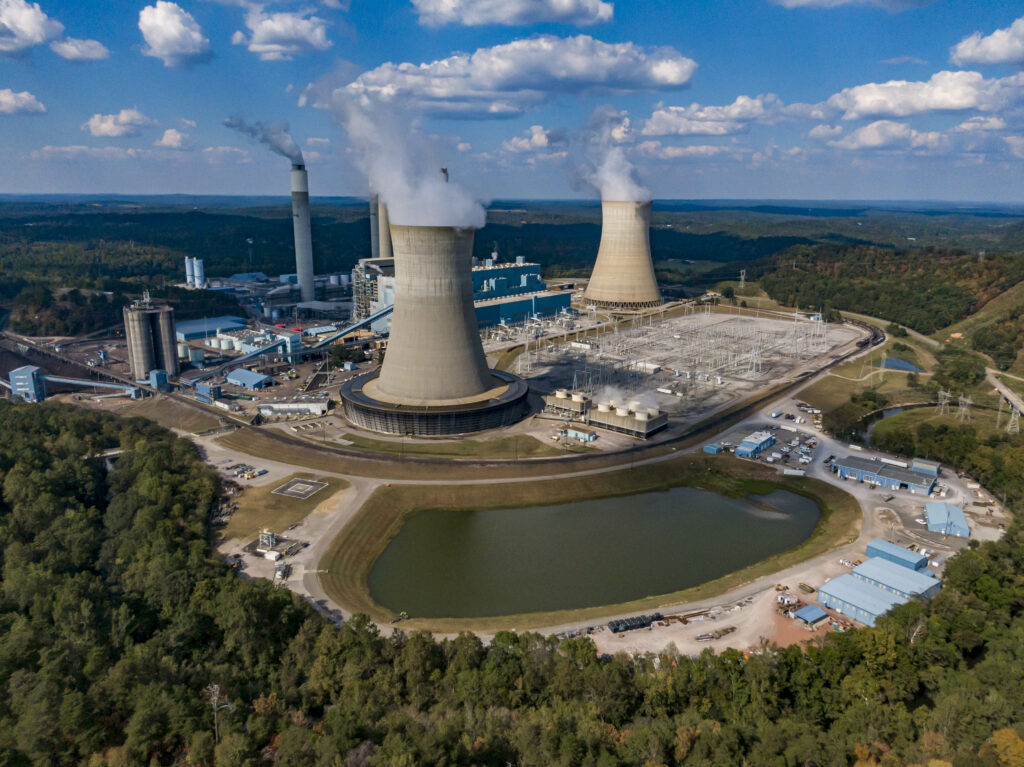Birmingham has a long history of air pollution known for harming its own residentsvand communities while contributing to global climate change. In this article, I’d like to address how local air quality is both an issue of public health and climate change. First, let’s start by grounding ourselves in our city’s history.
Birmingham was first founded in 1871, during the Reconstruction era as an industrial center. Birmingham was (and still is) rich in coal, limestone, and iron, all the elements necessary for the production of steel. So the city boomed seemingly overnight due to the burgeoning coal mining, steel industry, and manufacturing, earning it the name “The Magic City.”
While the promise of economic success became a reality for Birmingham’s first industry titans like Henry F. DeBardeleben and Col. James W. Sloss, this began the poor air quality conditions from factories and manufacturing that can still be seen to this day. We can see these effects of industry across Alabama where the air, soil, and water remain contaminated, unfortunately, securing many communities a place on the Environmental Protection Agency’s (EPA) Superfund site and 35th Ave North, in Birmingham being on the EPA’s Superfund National Priority List. These industries of the 19th century still harms our communities and contribute to overall global climate change.
Climate change refers to a long-term change in weather patterns and temperatures, which affect many aspects of life across our planet. Here in the U.S. South, we’re familiar with big storms, hurricanes, and tornadoes. Climate change influences the frequency and intensity of extreme weather events like storms and hurricanes by increasing temperatures in the ocean and atmosphere. Additionally, rising sea levels are a consequence of warming oceans and melting polar ice, exacerbating flooding risks along coastlines.
There is a scientific explanation behind these temperature changes that impact weather patterns. Typically, a portion of the sun’s rays is absorbed by the Earth, and another portion is reflected back into space. Gases like carbon dioxide in our atmosphere absorb some of this heat, keeping the planet warm enough to sustain life—this is known as the greenhouse effect. However, human activities such as heavy industry and the burning of fossil fuels have released excessive amounts of greenhouse gases, including carbon dioxide, methane, and nitrous oxide.
These gases trap additional heat, disrupting the balance that life on Earth is adapted to and contributing to climate change.
Jefferson County is home to one of the largest greenhouse gas emitters in the United States, the Alabama Power, James H. Miller Jr. Steam Plant, a coal-fired power plant. Birmingham is also home to several industrial facilities that produce materials like coke, steel, pipe, and concrete. These plants emit significant amounts of pollutants that harm the environment and contribute to climate change. These pollutants also pose public health risks, as many of them are linked to conditions like asthma, cancer, chronic obstructive pulmonary disease (COPD), and in some cases, reduced fertility. Residents of Birmingham are grappling with these health issues, and the proximity to these industrial sources is no coincidence.
We must hold polluters and regulators accountable and ensure they don’t pollute our communities and people. We must also move towards a just transition through policy that centers equity, health, and people over profits. Doing these two things will lead to healthier people, and decline the rate of climate change. If you would like to join GASP’s mission to making a difference, become a member, donate, or follow us for updates on what we’re doing to ensure healthy air in Birmingham.






